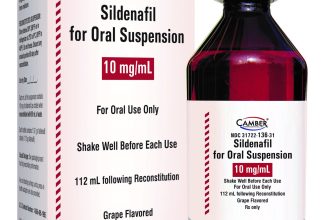No, generic Viagra isn’t FDA-approved yet. However, several companies are actively pursuing approval, and we can expect developments soon. This means increased competition and potentially lower prices for the treatment of erectile dysfunction (ED).
The current status hinges on the successful completion of rigorous clinical trials demonstrating equivalent efficacy and safety to the brand-name drug. These trials assess various factors, including the drug’s absorption rate, effectiveness in treating ED symptoms across diverse patient populations, and potential side effects. Successful completion paves the way for FDA review and potential approval.
Keep an eye on the FDA website and reputable pharmaceutical news sources for updates. Understanding the complexities surrounding generic drug approval processes helps patients make informed choices regarding their healthcare. Always consult your doctor before starting any new medication, especially for conditions like ED, to ensure it’s safe and suitable for your specific circumstances.
Remember: Self-treating ED can be risky. A doctor can accurately diagnose your condition and recommend the most appropriate treatment plan, considering your individual health profile and potential drug interactions.
- Generic Viagra FDA Approval: A Comprehensive Guide
- What is Generic Viagra and How Does FDA Approval Impact Availability and Cost?
- Safety and Efficacy: Are Generic Viagra and Brand-Name Viagra Equivalent?
- Bioequivalence Testing
- Safety Profile
- Cost Considerations
- Choosing Your Medication
- Finding and Obtaining FDA-Approved Generic Viagra Safely and Legally:
Generic Viagra FDA Approval: A Comprehensive Guide
No generic version of Viagra (sildenafil citrate) holds FDA approval for immediate sale. However, the patent on Viagra expired in 2012, opening the door for generic manufacturers. The FDA approves generic drugs based on bioequivalence studies demonstrating they perform identically to the brand-name drug.
Many generic sildenafil products are available, but their legality varies depending on location. Always purchase medication from licensed pharmacies to ensure quality and safety. Mislabeled or counterfeit drugs pose significant health risks.
Bioequivalence is key. Generic manufacturers must prove their product contains the same active ingredient, in the same amount, and releases it into the body at the same rate as Viagra. The FDA rigorously reviews this data before granting approval to market a generic.
Before taking any medication, including generic sildenafil, consult your doctor. Underlying health conditions can affect the safety and efficacy of erectile dysfunction medications. Your physician will assess your health and determine the appropriate dosage and potential interactions with other drugs.
Look for pharmacies with established reputations. Verify their licensing and check online reviews to help identify reliable sources. Avoid purchasing medication from untrustworthy websites or individuals.
FDA approval signifies a high standard of safety and efficacy. While many generic sildenafil products exist, confirmation of FDA approval for a specific product should be verified. This safeguards your health and ensures you receive a drug that meets rigorous quality controls.
Remember to properly store your medication as directed on the label. This helps ensure its effectiveness and safety over time.
What is Generic Viagra and How Does FDA Approval Impact Availability and Cost?
Generic Viagra, also known as sildenafil, is a copycat version of the original brand-name drug, Viagra. It contains the same active ingredient and works in the same way, treating erectile dysfunction (ED).
FDA approval significantly impacts both availability and cost. Here’s how:
- Increased Availability: FDA approval ensures the generic meets stringent quality and safety standards. This allows wider distribution through more pharmacies and online retailers, making it easier to access.
- Lower Cost: Generic drugs typically cost considerably less than their brand-name counterparts. This price difference stems from the fact that generic manufacturers don’t incur the high research and development costs associated with bringing a new drug to market. You can expect significant savings.
Before purchasing generic Viagra, always consult your doctor. They can assess your health, discuss potential side effects, and confirm this medication is suitable for you. They can also help you find reliable sources for your prescription.
- Verify the pharmacy’s legitimacy: Check for licensing and accreditation. Look for reviews and testimonials to gauge their reputation.
- Confirm the medication’s authenticity: Look for seals of approval and packaging that match the description from your prescription.
- Understand potential interactions: Inform your doctor of all other medications and supplements you take to avoid drug interactions.
Remember, using reputable sources and discussing your treatment with your doctor is key to a safe and effective ED treatment plan.
Safety and Efficacy: Are Generic Viagra and Brand-Name Viagra Equivalent?
Yes, generic Viagra (sildenafil) and brand-name Viagra are therapeutically equivalent. The FDA requires generic drugs to meet rigorous standards, demonstrating bioequivalence to the brand-name medication. This means they contain the same active ingredient, sildenafil, in the same amount and achieve comparable blood levels.
Bioequivalence Testing
Extensive testing confirms that generic sildenafil produces similar pharmacological effects as brand-name Viagra. These tests meticulously assess absorption, distribution, metabolism, and excretion of the drug, ensuring consistent performance.
Safety Profile
Both generic and brand-name Viagra share the same potential side effects, including headache, flushing, nasal congestion, and visual disturbances. The frequency and severity of these side effects are comparable between the two. Always inform your doctor about any existing health conditions before using either medication.
Cost Considerations
Generic Viagra offers a significant cost advantage compared to the brand-name version, making it a more accessible option for many individuals. However, price variations exist between different pharmacies and manufacturers; it is advisable to compare prices before purchasing.
Choosing Your Medication
The decision between generic and brand-name Viagra is largely a matter of personal preference and cost. Both offer clinically equivalent efficacy and comparable safety profiles. Discuss options with your doctor to determine the best choice for your individual needs.
Finding and Obtaining FDA-Approved Generic Viagra Safely and Legally:
Check the FDA’s official website for a list of approved generic sildenafil products. This ensures you’re buying a medication that has met rigorous safety and efficacy standards.
Purchase from licensed pharmacies. Look for pharmacies with a physical address and a verifiable license displayed prominently. Avoid online pharmacies lacking this information.
Consult your doctor before starting any medication, including generic Viagra. They can assess your health, discuss potential side effects, and ensure it’s appropriate for you.
Be wary of suspiciously low prices. Extremely cheap Viagra might be counterfeit and potentially harmful. A slightly lower price than brand-name is expected, but not dramatically so.
Read online reviews and testimonials from reputable sources. These can offer insights into the experiences of other patients but should be viewed as supplemental information to medical advice.
Verify the pharmacy’s accreditation with relevant regulatory bodies. Legitimate pharmacies often display their accreditation badges on their website.
Report suspicious online pharmacies to the authorities. This helps protect other potential buyers from fraudulent activity.
Remember to always store medication according to label instructions. This helps ensure its efficacy and safety.
Never share your medication with others. Generic Viagra should only be taken by the person it was prescribed for.
Disclaimer: This information is for educational purposes only and does not constitute medical advice. Consult a healthcare professional for personalized guidance.





